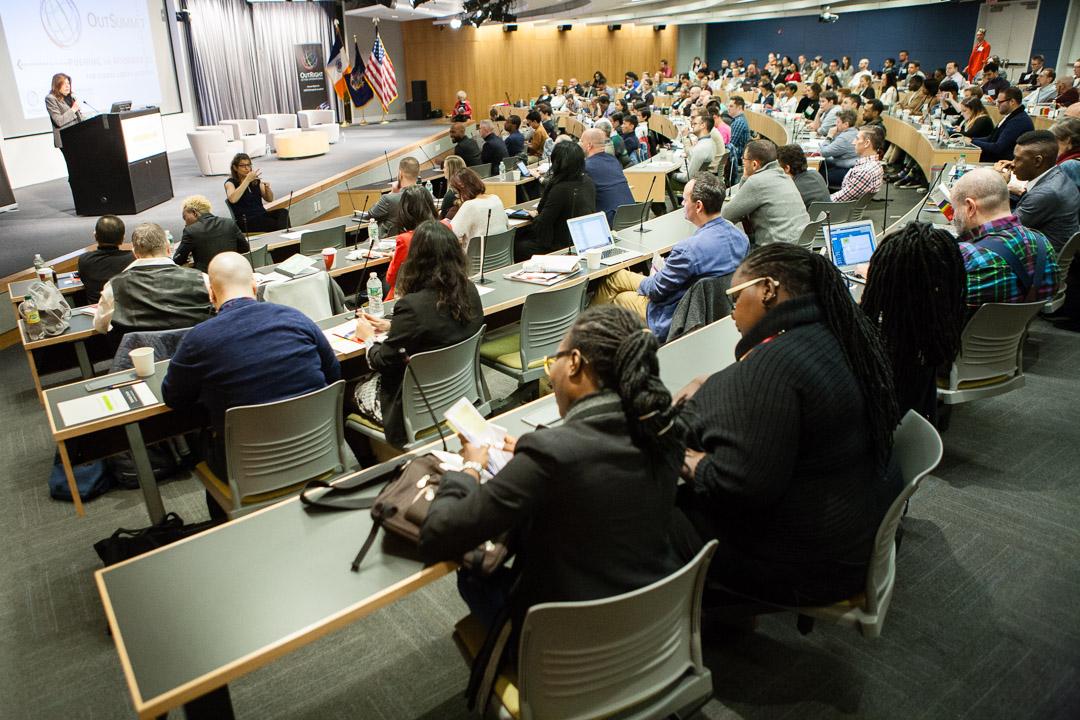
Press Release
Asian Development Bank Carves Path Addressing LGBTIQ Inclusion
Region(s)
TOPIC(s)
Publish Date
January 10, 2025
Authors
New York, New York - January 10, 2025 - In an important step towards the inclusion of lesbian, gay, bisexual, transgender, intersex, and queer (LGBTIQ) people, the Asian Development Bank (ADB) has adopted an Environmental and Social Framework (ESF) that explicitly addresses the risk of exclusion based on gender, sexual orientation, and gender identity. The ADB makes loans to Asian governments to support health, education, livelihood, infrastructure, and climate programs. The Environmental and Social Framework requires the Bank and borrowing countries to assess and respond to the risk that “disadvantaged and vulnerable populations” will be excluded from projects financed by the ADB.
Quote from Maria Sjödin
“For a country to develop sustainably, no one can be left behind, and the ADB’s new safeguard helps ensure that development projects don’t exclude LGBTIQ people. The new safeguard marks a significant step toward ensuring that people in borrowing countries won't be arbitrarily turned away from health clinics or schools that are funded by loans because of their identities,”
This milestone results from a five-year process to review and replace the 2009 safeguards policy, during which the United States tabled a proposal at the ADB Board of Directors to create specific safeguards addressing discrimination based on gender, sexual orientation, and gender identity. Ambassador Chantale Wong, the only openly lesbian US Ambassador, represents the United States on the ADB Board. These changes are a culmination of the review process and the US proposal.
Initially, Malaysia, Pakistan, and Indonesia led an aggressive internal campaign to defeat the proposal based on what they described as “cultural” opposition to the concepts of gender, sexual orientation, and gender identity. These countries echoed the same approach they have taken in other multilateral institutions, arguing that concern for LGBTIQ populations is outside the mission of the ADB.
Outright International worked assiduously to defend the proposed language, leading a three-year campaign advocating that the definition of disadvantaged and vulnerable populations include explicit reference to sexual orientation, gender identity, gender expression, and sex characteristics as potential bases for exclusion that merit protection. Outright has collaborated with LGBTIQ groups in countries represented on the ADB Board of Directors and has worked directly with staff and board members to help them understand the importance of LGBTIQ inclusion to economic development and the goals of the ADB.
The approved policy explicitly protects “individuals or groups who, by virtue of, for example, their age, gender, ethnicity, religion, disability, social, civic or health status or information, sexual orientation, gender identity, economic disadvantages or Indigenous status, and/or dependence on unique natural resources, may be more likely to be at risk of being adversely affected by project impacts, and/or more limited than others in their ability to take advantage of a project’s benefits, and/or excluded from/unable to participate fully in consultation processes and benefit sharing in a project.” One shortcoming is the policy’s lack of explicit protection based on sex characteristics. The ADB should ensure that in its implementation of the framework, intersex people, who face significant levels of discrimination in all parts of the world, will be equally recognized as a disadvantaged and vulnerable population, and should work closely with intersex civil society organizations to assure them that they will have recourse in case of discrimination.
“While we commend this inclusive initiative, the next step should be to support LGBTIQ groups in Asia in holding the ADB accountable for ensuring the Environmental and Social Framework positively impacts our communities,” said Ging Cristobal, Asia Program Officer at Outright International. “Outright and its civil society partners in Asia are ready to serve as watchdogs and monitor what implementation looks like, including for intersex people, and how exclusion is still being practiced. Where we see progress, we are ready to highlight how this ADB effort is helping improve LGBTIQ lives in every country.”

Read Our Publications
Since 1990, we have partnered with activists from all over the world to produce hundreds of groundbreaking reports.
Learn More